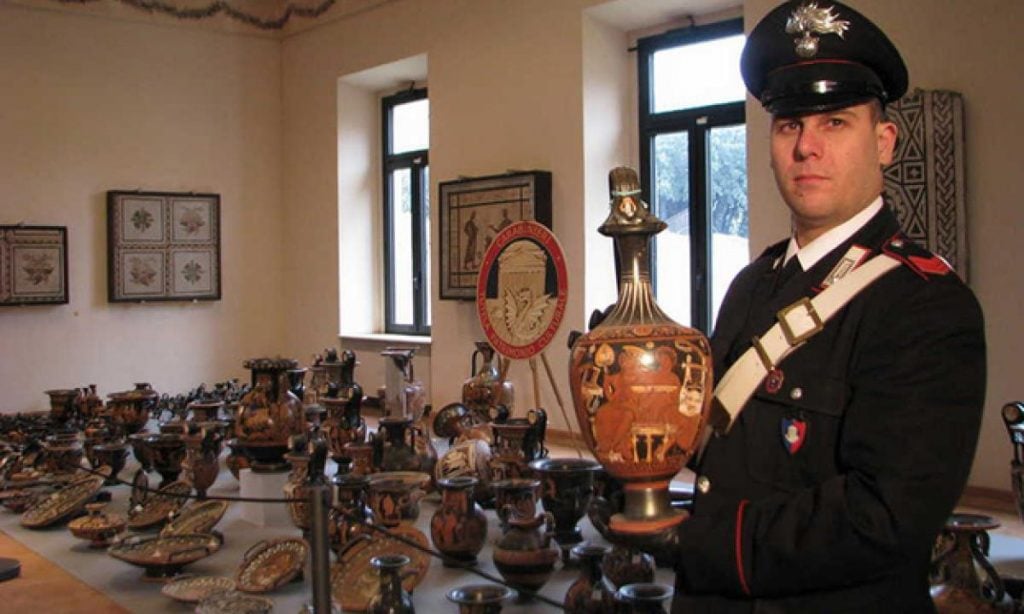Law & Politics
Increase in Antiquities Smuggling Busts Amid Government Crackdown
Over 2,200 illicit items were recovered on Wednesday.

Over 2,200 illicit items were recovered on Wednesday.

In an effort to cut off ISIS revenue streams, politicians in the UK have encouraged greater international coordination to limit the smuggling of illicit antiquities from Iraq and Syria. After the sale of oil, extortion, and ransom payments, the trade of illegal artifacts is said to be an important source of revenue for the organization. A parliamentary debate on looted antiquities is scheduled to take place in the near future.
“This is the greatest scale of looting we have seen since the Second World War,” Robert Jenrick, a Conservative MP and a former director at Christie’s told the Art Newspaper. He and fellow Conservative MP and former director at Sotheby’s Hugo Swire are leading an initiative to crack down on illegal antiquities smuggling. They have already won support from the UK Foreign Secretary Phillip Hammond. Together they hope to secure additional funding for the Metropolitan Police’s Arts and Antiques department to help ensure stricter law enforcement.
The message has also reached the US, where Jenrick has been in contact with American politicians who have been trying to introduce legislation to stop the import of Syrian and Iraqi artifacts into the country. The bill has gained bipartisan support and is sponsored by the Democratic Congressman Eliot Engel of New York and Republican Congressman Chris Smith of New Jersey.
In an interview with artnet News, Christos Tsirogiannis, an expert on the illicit antiquities trade at the University of Glasgow, called for a single international “archaeological or a police authority” to take the lead, as well as “a mutual cooperation between the responsible authorities” already in existence.
Successful Police Cooperation
Recent busts have shown encouraging signs that increasing synergy between international police forces is proving successful. On Wednesday, Europol announced that a 14-country European investigation led to the seizure of 2,200 illicit Egyptian antiquities and the arrest of 35 suspected antiquities traffickers in the Spanish port of Valencia. The 36 items presented to journalists by the Spanish police alone are said to have a market value of €300,000 ($338,781).
Last week, a Swiss and Italian investigation uncovered a Swiss-Italian smuggling ring and recovered a record €50 million ($58 million) trove of illicit antiques.
However, according to Tsirogiannis more needs to be done. He urged public and private institutions to accept more responsibility to crack down on the illicit antiquities trade. “The museums do have the ability to detect the provenance of an object, the collective history, but unfortunately the recent examples in the last 10 years reveal that actually they don’t really care to get to the bottom of it in order to secure their acquisitions as totally legitimate,” he said.